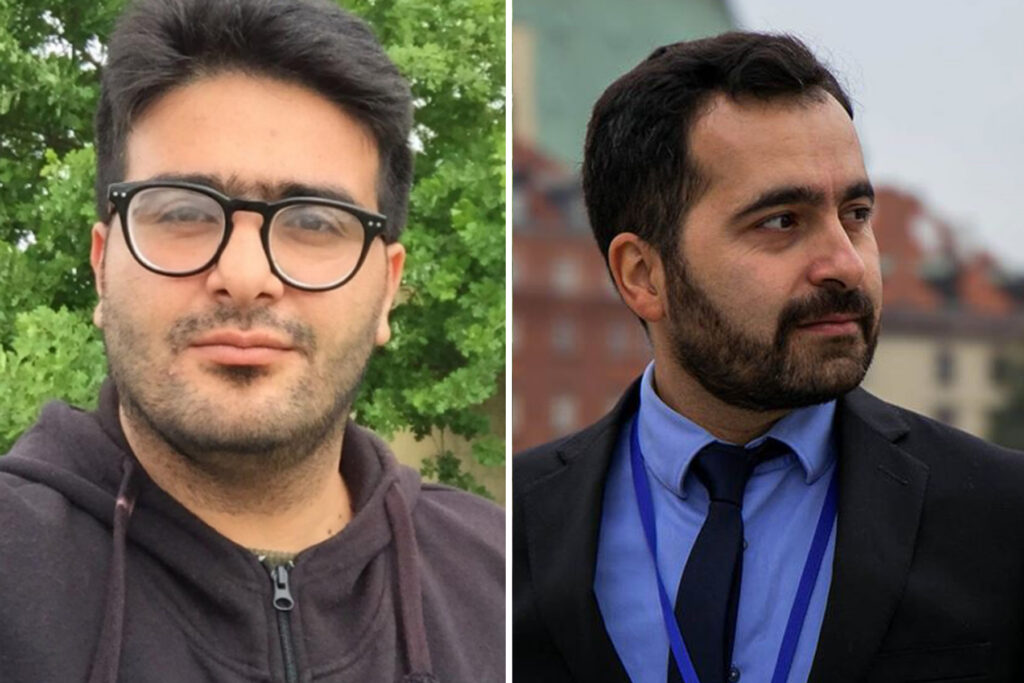Two pro-democracy campaigners in Azerbaijan have claimed to have received a barrage of suspicious messages from unknown phone numbers which they fear will be used by the authorities to bring false charges against them.
Ilkin Rustamzade, a prominent member of pro-democracy youth movement NiDA, and Bakhtiyar Hajiyev an activist and blogger, both reported suspicious activity over the last few days.
Both men have previously spent time in prison and were recognised by Amnesty International as prisoners of conscience.
Rustamzade reported on Thursday that he had been receiving insults and threats via messaging service WhatsApp from dozens of accounts registered to US phone numbers.
‘At the end of all the threatening messages, the [Azerbaijani] president’s name is mentioned. It’s as if someone wants me to demarche at any cost and then be arrested in a high-profile criminal case’, he said.
A day later, Rustamzade reported an unsuccessful attempt to break into his Facebook account.
Similar claims were reported on Saturday by Hajiyev, who said that several virtual phone numbers registered in the US added him to a group conversation that included police officers. He said the unknown numbers then began addressing him with messages meant to incriminate him.
According to Hajiyev, these included messages asking him where to deliver an unidentified sum of money and what to do with ‘Chovdarov’s share’.
Akif Chovdarov is a former general in the defunct Ministry of National Security who was sentenced to 12 years in prison in 2015 along with several other officials for running a criminal organisation within the ministry.
Chovdarov was on a list of 176 elderly people pardoned by President Aliyev on 6 April.
Hajiyev urged Interior Minister Vilayat Eyvazov and the Chief of the State Security Service, Ali Naghiyev, ‘to find and punish […] the cyber provocateurs’.
In an interview with Turan, Hajiyev said that someone had also set up a fake social media profile that was calling for protests and was including his phone number as a contact point.
He also said he was receiving calls throughout the night from hidden phone numbers and that his email address had been registered on an Armenian dating website.
A response to a petition
In the interview with Osmangizi TV on Saturday, Rustamzade linked what was happening to a petition he started at the end of March. The petition urged the government to allocate social benefits to the public and to cancel bank loans and utility bills.
Several days after the petition was launched, Rustamzade reported an online campaign against him by several individuals and media outlets who he said wrote ‘insulting’ posts about him and his wife.
He said he received a warning from a man claiming to be from the intelligence services via WhatsApp that if he did not stop the petition they would ‘do very filthy things’ to his wife.
Rustamzade also said a profile posing as his wife was created on an escort website.
On 8 April, Rustamzade reported on Facebook that he expected he might soon be arrested. However, police officers who initially accused him of violating the quarantine regime left issuing him only a verbal warning.
On 9 April, Amnesty International condemned the harassment of Rustamzade and his family.
[Read more on OC Media: Six more opposition activists arrested in Azerbaijan]
Gunel Gozalova, the chief spokesperson for the Ministry of Communications, told Turan that the activists should contact the e-Security Centre, where their stories would be checked.
‘There are questions that can only be answered after an investigation. Social network accounts are located on international platforms. To contact them, we must have appeals from these citizens’, she said.




 27 April 2020
27 April 2020



